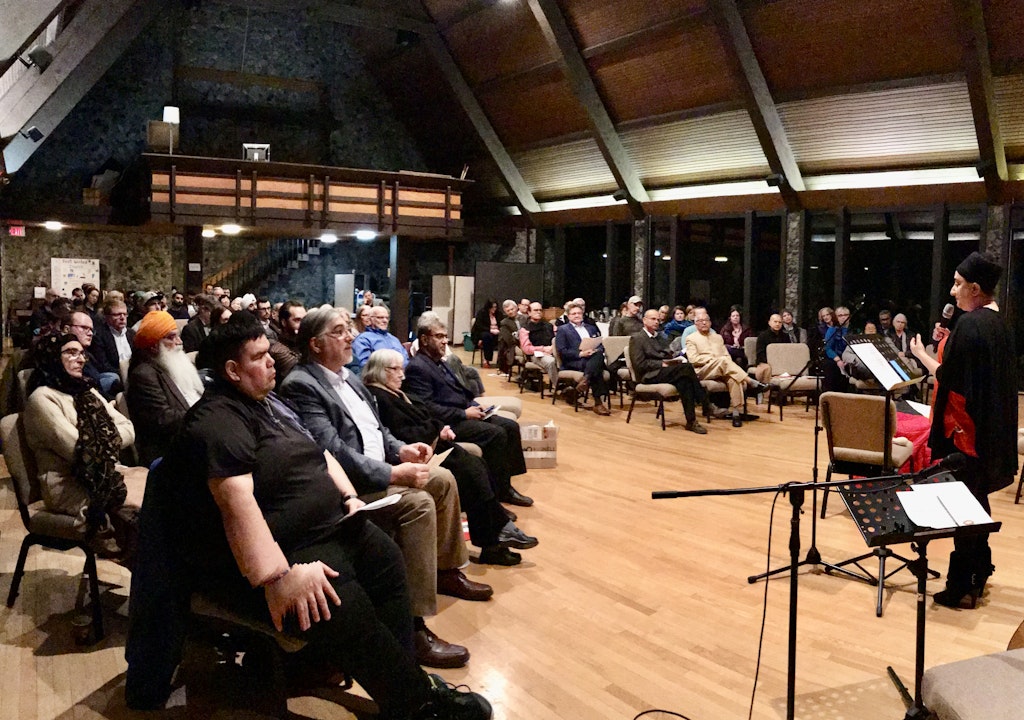The Baha’i Faith, an independent world religion founded in the 19th century, elucidates a profound theological concept: that to every nation and people, a Messenger of God has been sent, imparting divine teachings that correspond with their unique cultural and societal contexts. This notion not only fosters a spirit of inclusivity but also invites a deeper exploration of shared humanity across diverse faith traditions. By examining this principle, one can uncover insights into the nature of spiritual revelation, the role of religious unity, and the significance of progressive revelation—the belief that God has continually communicated with humanity through a succession of Prophets or Messengers.
At the heart of Baha’i teachings lies the assertion that the divine message is not monolithic; rather, it is multifaceted, addressing the spiritual and material needs of humanity as they evolve through time. This fundamental tenet challenges the exclusivity often perpetuated by established religions, positing instead that all major world religions are part of a singular, ongoing narrative of divine guidance. Each Messenger—Moses, Jesus, Muhammad, the Bab, and Baha’u’llah—has provided wisdom pertinent to the people he was destined to serve, thus enabling diverse societies to navigate their distinctive historical and cultural terrains.
The implication of this theological framework is staggering. It beckons adherents of various faiths to reconsider their perspectives on religious truth and validity. In a world fraught with sectarian strife and division, the Baha’i perspective radiates a clarion call for unity among all peoples. The teachings entreat us to recognize that the purpose of religion is to promote harmony and fellowship, not discord.
This reverence for the teachings of past Messengers underpins the Baha’i principle of progressive revelation. Instead of viewing previous religions as obsolete or surpassed, Baha’is regard them as integral components of a divine educational process. Each Messenger, while conveying new laws and teachings, reinforces the fundamental spiritual truths that bind humanity together. This continuity presents an opportunity for individuals to engage in a comparative study of religious texts, fostering mutual respect and understanding. Through examining the teachings of different Messengers, one can appreciate the harmonious threads woven throughout the fabric of religious history.
An integral element of understanding this principle is the concept of the “Manifestation of God.” The Baha’i Faith posits that each Messenger is a divine Manifestation, possessing a unique relationship with God that enables them to provide guidance tailored to the peoples they serve. These Manifestations embody the virtues and attributes of the divine, serving as exemplars for humanity. Through their actions and teachings, they illuminate pathways toward spiritual fulfillment and ethical living.
The Baha’i teachings emphasize that every individual is endowed with an innate capacity to comprehend and recognize the truth brought forth by these Holy Manifestations. As such, Baha’is encourage seekers of truth to engage actively in the pursuit of knowledge, examining religious teachings while eschewing blind allegiance to traditions or authorities. This advocacy for personal inquiry aligns harmoniously with the idea that divine wisdom can be discovered through the study of various religious texts, thereby enriching one’s understanding of spiritual principles.
Another facet of this paradigm is the recognition of the universality of human experience. Regardless of cultural or religious backgrounds, individuals grapple with existential questions, ethical dilemmas, and the search for meaning. The Baha’i teachings articulate that the divine messages provided through various Messengers resonate with the core aspirations of humanity—peace, justice, and love for one another. This universality serves as a bridge that allows individuals from diverse backgrounds to find common ground in their spiritual journeys.
Furthermore, the Baha’i perspective on religious pluralism calls upon humanity to embrace diversity not merely as a reality but as a vital strength. The acknowledgment that different cultures and traditions possess their own narratives fosters an atmosphere where dialogue can flourish. In a global society increasingly characterized by interdependence, such dialogue is imperative for fostering cooperation and understanding among people of varied beliefs and practices.
In practical terms, embracing the teaching that “to every people was sent a Messenger” leads to transformative social implications. It underpins community-building efforts aimed at inclusivity and understanding. Baha’i communities worldwide engage in initiatives that seek to uplift marginalized voices, promote social justice, and foster interreligious dialogue. This activism is fueled by the conviction that the ultimate purpose of religion is to create a more just, compassionate, and unified world.
Ultimately, the Baha’i perspective implores humanity to transcend dogma and embrace the unifying essence of faith. It beckons individuals to see the beauty in diversity, to inquire into the depths of spiritual wisdom, and to construct a global civilization grounded in the principles of equity, justice, and love. The promise of this shift in perspective holds immense potential: it invites individuals to enter a new era of understanding that honors the past while ardently looking forward to a future ripe with possibility.
In the embrace of this expansive worldview, we can envision a society wherein differences are celebrated, dialogues are nurtured, and the teachings of diverse Messengers intermingle to illuminate the path forward. In this light, the call to recognize the manifold ways in which the divine has reached out to humanity serves not just as academic exploration but as a profound invitation to join in the collective endeavor of achieving enduring peace and reconciliation across the globe.
